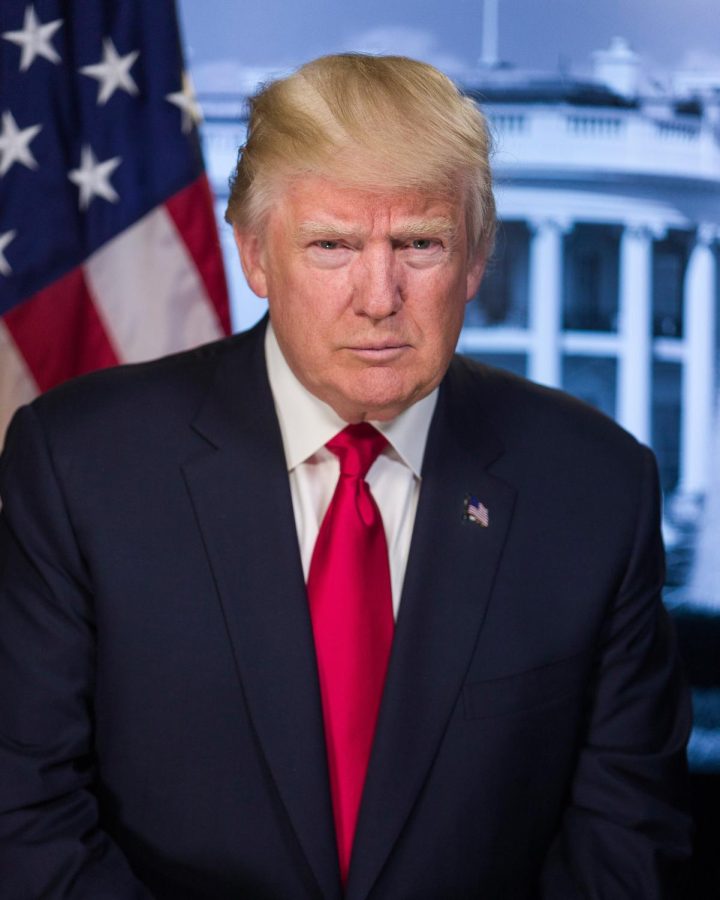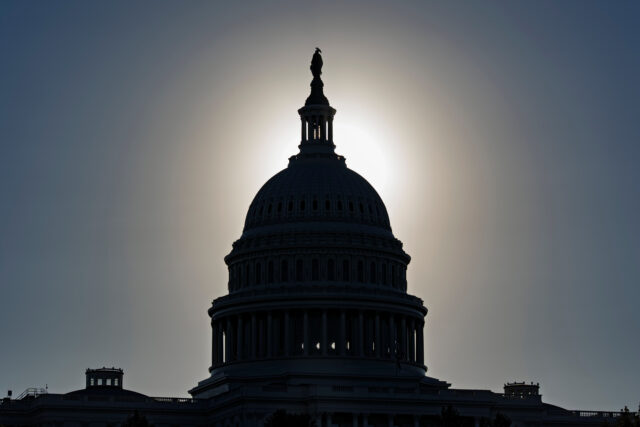Trump Indicted in New York
April 18, 2023
On March 30, former president Donald J. Trump was indicted in the New York State Supreme Court for 34 counts of Falsifying Business Records in the First Degree. These charges were brought forth as felonies by Manhattan District Attorney Alvin L. Bragg, who sought to bring the charges which typically classify as only misdemeanors to felony status.
According to the New York State Senate, “A person is guilty of falsifying business records in the first degree when he commits the crime of falsifying business records in the second degree and when his intent to defraud includes an intent to commit another crime or to aid or conceal the commission thereof. Falsifying business records in the first degree is a Class E felony.”
This legality was the key element that allowed Bragg to present the charges as felonies, with his primary case stemming from the admission from Trump’s former lawyer Michael Cohen to delivering a $130,000 hush money payment with funds wired by the Special Counsel. This payment was made with campaign funds and occurred just 12 days before the 2016 presidential election took place.
“The People of the State of New York allege that Donald J. Trump repeatedly and fraudulently falsified New York business records to conceal crimes that hid damaging information from the voting public during the 2016 presidential election,” Bragg said in a press release published by the Manhattan District Attorney’s Office. “Manhattan is home to the country’s most significant business market. We cannot allow New York businesses to manipulate their records to cover up criminal conduct. As the Statement of Facts describes, the trail of money and lies exposes a pattern that, the People allege, violates one of New York’s basic and fundamental business laws. As this office has done time and time again, we today uphold our solemn responsibility to ensure that everyone stands equal before the law.”
Another key element of the case are the charges of instances occurring both during and after his election into office, including a “catch and kill” scheme in which Trump identified, purchased and buried negative information about him to increase his chances of success in the election. Many other instances make up the total of 34 counts that Trump was charged with in the indictment, which made him the first former president in U.S. history to face criminal charges. In the few weeks following the indictment, a number of developments have unfolded in response, including District Attorney Bragg’s suit against Representative Jim Jordan of Ohio.
“Chairman Jordan’s demands, including his subpoena to Mr. Pomerantz, seeks highly sensitive and confidential local prosecutorial information that belongs to the Office of the District Attorney and the People of New York Basic principles of federalism and common sense, as well as binding Supreme Court precedent, forbid Congress from demanding it,” Bragg’s office said in the suit document, responding to the Ohio representative’s subpoena of former Special Assistant District Attorney Mark Pomerantz who had previously led the investigation on Trump that led to his eventual indictment.
Jordan’s subpoena seeks Pomerantz’s testimony in order to attempt to interfere with the charges brought against the Republican former president. This is just one of the many grievances brought forth in Bragg’s 50-page document suing Representative Jordan, and a notable example of the series of political shuffles that have occurred since the indictment.
Moving forward, it is unclear exactly what will come of this historical indictment. Trump appeared in court for an arraignment on Tuesday, April 5 where he pleaded not guilty to all 34 counts of felony charges. The next hearing for the case will not be held until Dec. 4. Trump’s attorneys have been given a deadline of Aug. 8 by New York Judge Juan Merchan to file motions in the case and prosecutors will have until Sept. 19 to respond. At earliest, a trial would not be expected until next year.








